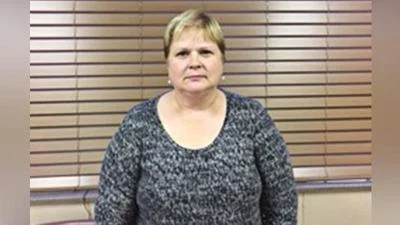Dean Kaufert, Wisconsin State Representative for 53rd District | Official website
Dean Kaufert, Wisconsin State Representative for 53rd District | Official website
According to the Wisconsin State Legislature's official website, the bill was described as follows: "independence accounts. (FE)".
The following is our breakdown, based on the actual bill text, and may include interpretation to clarify its provisions.
In essence, this bill mandates the Department of Health Services to permit individuals to deposit up to $15,000 of their gross earnings per year into an independence account without affecting their eligibility for Medical Assistance under the Medical Assistance purchase plan. Independence accounts, which include savings and income earned from employment while receiving Medical Assistance, are not counted towards the $15,000 asset limit for maintaining eligibility. Additionally, the bill excludes assets obtained through inheritance from being considered in eligibility assessments. The measure requires the department to pursue any necessary federal approvals to implement these provisions effectively, contingent upon non-disapproval from the federal Department of Health and Human Services.
The bill was co-authored by Senator André Jacque (Republican-1st District), Representative Scott Allen (Republican-82nd District), Representative Elijah R. Behnke (Republican-6th District), Representative Daniel Knodl (Republican-24th District), and Representative David Murphy (Republican-56th District). It was co-sponsored by Senator Dan Feyen (Republican-20th District), along with two other co-sponsors.
Dean Kaufert has co-authored or authored another 28 bills since the beginning of the 2025 session, with none of them being enacted.
kaufert graduated from the University of Wisconsin-Stevens Point.
kaufert, a Republican, was elected to the Wisconsin State Assembly in 2025 to represent the state's 53rd Assembly district, replacing previous state representative Michael Schraa.
In Wisconsin, the legislative process starts when a senator, constituent, group, or agency proposes an idea for a bill. After drafting, the bill is introduced, numbered, and referred to a committee for review and public input. If approved, it moves through three readings and votes in both the Senate and Assembly. Once both chambers pass the same version, the bill goes to the governor, who can sign it, veto it, or let it become law without a signature. Only a small share of bills introduced each session ultimately become law. You can learn more about the Wisconsin legislative process here.
| Bill Number | Date Introduced | Short Description |
|---|---|---|
| AB253 | 05/08/2025 | Independence accounts. (FE) |
| AB176 | 04/15/2025 | Financial eligibility for the Alzheimer’s family and caregiver support program. (FE) |






 Alerts Sign-up
Alerts Sign-up